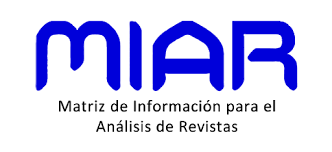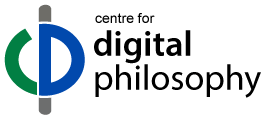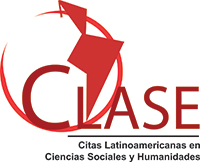Revisiting the mind-brain reductionisms: Contra dualism and eliminativism
DOI:
https://doi.org/10.15448/1984-6746.2016.2.24536Palavras-chave:
Dualismo. Eliminacionismo. Crenças Morais. Naturalismo. Normatividade. Reducionismo.Resumo
Este artigo procura argumentar contra o eliminacionismo e o dualismo de substância ou de propriedade, visando mais especificamente os argumentos reducionistas oferecidos pelo casal Churchland e por versões de dualismo propostas por Swinburne, na medida em que põem em causa as crenças morais enquanto relatos de primeira pessoa, desconsiderados como psicologia popular pelos primeiros e como supervenientes pelo segundo (como eventos naturais que se estendem necessariamente, em ambos os sentidos do bicondicional ligando substâncias mentais e físicas: para toda substância-A x existe uma substância-B y, de modo que necessariamente se y existe, x existe).
Downloads
Referências
CHALMERS, David. Facing up to the hard problem of consciousness. Journal of Consciousness Studies, 2 (1995), p. 200-219.
______. The Conscious Mind, Oxford University Press, 1996.
CHURCHLAND, Patricia S. Neurophilosophy: Toward A Unified Science of the Mind- Brain. Bradford Books. Cambridge, MA: MIT Press. 1986.
CHURCHLAND, Paul M. Matter and Consciousness. Cambridge, MA: Bradford Books, MIT Press, 1984.
______. The Engine of Reason, The Seat of the Soul: A Philosophical Journey into the Brain. Cambridge: MIT Press, 1994.
DAMASIO, Antonio. The feeling of what happens: Body and emotion in the making of consciousness. New York: Harcourt Brace, 1999.
______. Looking for Spinoza: Joy, sorrow and the feeling brain. New York: Harcourt, Inc., 2003.
______. (1994). Descartes’ Error: Emotion, reason, and the human brain. New York: Penguin, 2005.
______. Self Comes to Mind: Constructing the conscious brain. New York: Pantheon Books, 2010.
DUNBAR, Robin I. M. The Social Brain Hypothesis. Evolutionary Anthropology: Issues, News, and Reviews, 6, 5 (1998), p. 178-190. DOI: https://doi.org/10.1002/(SICI)1520-6505(1998)6:5<178::AID-EVAN5>3.0.CO;2-8
GAZZANIGA, Michael. The social brain. New York: Basic Books, 1985.
______. The Ethical Brain. New York: Dana Press, 2005.
GIORDANO, James; Gordijn, Bert (Eds.). Scientific and Philosophical Perspectives in Neuroethics. Cambridge University Press, 2010. DOI: https://doi.org/10.1017/CBO9780511676505
GLASGOW, Joshua. A Theory of Race. New York: Routledge, 2009. DOI: https://doi.org/10.4324/9780203880951
GODFREY-SMITH, Peter. Complexity and the Function of Mind in Nature. Cambridge University Press, 1998.
HABERMAS, Jürgen. Communication and the Evolution of Society. Trans.
T. McCarthy. Boston: Beacon, 1979.
HORGAN, Terence. “Metaphysical Realism and Psychologistic Semantics,” Erkenntnis, 34, 3 (1991), p. 297-322. DOI: https://doi.org/10.1007/BF00172517
HORGAN, Terry; Timmons, Mark. “Metaphysical Naturalism, Semantic Normativity, and Meta-Semantic Irrealism”. Philosophical Issues 4/18: Naturalism and Normativity, (1993), p. 180-204. DOI: https://doi.org/10.2307/1522840
HORNSBY, Jennifer. Simple Mindedness: In Defense of Naive Naturalism in the Philosophy of Mind. Cambridge, MAS: Harvard University Press, 1997.
KANT, Immanuel. (1781). Kritik der reinen Vernunft. Frankfurt: Surhkamp, 1987.
KORSGAARD, Christine M. “Reflections on the Evolution of Morality”. The Amherst Lecture in Philosophy [Amherst College Press], 5 (2010), p. 1-29.
MILLIKAN, Ruth G. Language: A Biological Model. Oxford University Press, 2005. DOI: https://doi.org/10.1093/0199284768.001.0001
PRINZ, Jesse. Furnishing the Mind: Concepts and Their Perceptual Basis. MIT Press, 2002. DOI: https://doi.org/10.7551/mitpress/3169.001.0001
______. The Emotional Construction of Morals. Oxford University Press, 2004b.
______. The Conscious Brain. Oxford University Press, 2012.
SEARLE John. Can Computers Think? In: Minds, Brains and Science. Reith Lectures. Cambridge, Mass.: Harvard University Press, 1984.
______. The Construction of Social Reality. New York: Free Press, 1995.
SWINBURNE, Richard. (1986). The Evolution of the Soul. 2nd revised edition. Oxford University Press, 1997.
______. Mind, Brain, and Free Will. Oxford University Press, 2013.
______. Gut Reactions: A Perceptual Theory of Emotion. Oxford U Press, 2004a.
Downloads
Publicado
Como Citar
Edição
Seção
Licença
Direitos Autorais
A submissão de originais para a Revista Veritas implica na transferência, pelos autores, dos direitos de publicação. Os direitos autorais para os artigos publicados nesta revista são do autor, com direitos da revista sobre a primeira publicação. Os autores somente poderão utilizar os mesmos resultados em outras publicações indicando claramente a Revista Veritas como o meio da publicação original.
Licença Creative Commons
Exceto onde especificado diferentemente, aplicam-se à matéria publicada neste periódico os termos de uma licença Creative Commons Atribuição 4.0 Internacional, que permite o uso irrestrito, a distribuição e a reprodução em qualquer meio desde que a publicação original seja corretamente citada. Copyright: © 2006-2020 EDIPUCRS



















